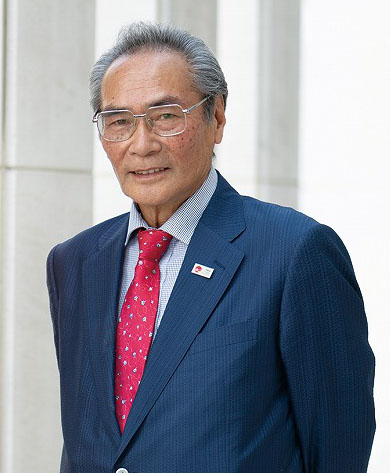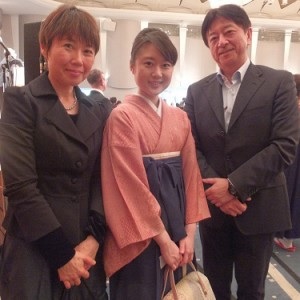お子様の進路決定に際し
知っていただきたいこと

専門学校日本ホテルスクールは、ホテル・ブライダルの現場で活躍できる人材を育成するために1972年に設立されました。設立以来ずっとこだわってきたこと、それは「業界の発展に貢献し続ける」「すべての学生に満足のいく教育を」。そのために積み重ねてきたことを保護者の皆さまにお伝えします。
校長からのメッセージ
ホテル・ブライダル業界への進路をご検討なさるにあたって保護者の皆さまにおかれましては、さまざまな不安や疑問をお持ちの方もいらっしゃることでしょう。私たちはそのようなすべての皆さま一人ひとりと真摯に向き合ってまいりたいと考えております。ぜひ一度学校に足を運んでいただけたら幸いです。
専門学校 日本ホテルスクール
校長 石塚 勉


知っていただきたい5つのこと
1.業界から生まれたホテル・ブライダルの専門教育機関
プリンスホテルがホテリエ育成を目的に「プリンスホテルスクール」を開校。人材育成が急務となった背景により、日本ホテルスクールは日本最大のホテル単科校として歩んできました。いくつかある専門学校の中で明らかに違うことは、総合観光の学校ではないということ。在籍者全員が同じ将来の目標を持って学ぶからこそ、より専門的なカリキュラムが実現できます。
2.業界との強い信頼関係による高い就職実績
毎年、ホテル・ブライダル企業の人事担当者、さらには総支配人自らが本校に来校し、会社説明会を行っており、本校の学生への期待値の高さを物語っています。また、同窓会活動も活発に行い、卒業後も強力なネットワークが働く際や転職の支援を間接的に行えるのも大きな特長です。
3.業界から高い評価を受ける教育プログラム
「理論と実技の一体化によるサービスの創造」に基づくカリキュラムとして、本校のカリキュラムは、座学と実習を繰り返すことで座学で理解したことをすぐに現場で実践でき、現場で体得したことを再度理論に当てはめて考えられること。昼間部で行われる2年間の3回の実習は異なるホテル(ブライダル施設)と職種を体験することで、就職の際の企業選択や職種の適性を実体験を通じて考える機会をもつことができます。そして学生であっても報酬をもらって実習することで学生自身の責任感を養うと同時に、海外研修旅行の費用に充当し経済的負担の軽減にもつながります。
4.大学と専門学校日本ホテルスクールの違い
観光系学部や学科を設置する大学が急増しています。大学と日本ホテルスクールの間では、企業実習や授業の組み合わせなどのカリキュラム、教材や講師陣などは異なります。特に進路指導や就職先には大きな違いがあります。卒業生の進路を見ると、観光系大学では観光関係分野への就職が多くを占めるわけではなく、ホテル・ブライダル関連への就職は1割程度に留まっています。「接客」を切り口としてキャリアを積み、現場のプロフェッショナルやマネジメントをめざしたいという志向を持つ方には日本ホテルスクールのような専門学校の学びが適しているのではないでしょうか。
5.「業界の発展に貢献し続ける」ための人材育成
本校と連動してホテル業界の就職をめざす若手人材育成やホテル・旅館を中心とするホスピタリティ産業の人材育成を行う「一般財団法人日本ホテル教育センター」。財団では、専門学校日本ホテルスクールの職員との共同で、50種類以上のホテル教育テキストを開発。全国100以上の企業、大学、専門学校などで教材として使用されています。業界の発展に貢献するため、テキストの開発を通じて人材育成にも取り組んでいます。

